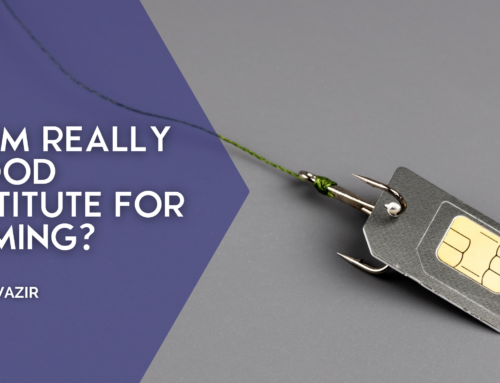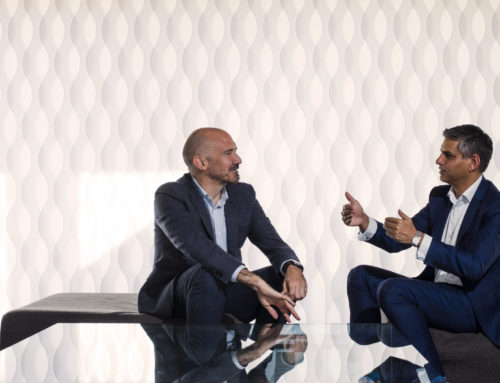 The Huawei Question
The Huawei Question
Article by Polina Hristova
The armies ensembled to partake in the battle for global 5G dominion have barely left the gates, and there’s already been a bloodbath in Huawei’s territory; the complete list of charges is lengthy, and the accusations bear heavy consequences – we’ve all heard the story by now. And while Huawei’s supposed cooperation with the Chinese government is highly likely and the animosity between China and the US is growing, so do the conspiracy theories and theatrics attached to this game of thrones.
Examining the problem through the prism of needless catastrophizing paints a caricatural picture of a low-budget spy movie, but despite having little to no commercial deployment (and a just a fake one) for now, 5G is predicted to completely change our idea of connectivity, especially when paired with IoT devices.
AT&T’s CEO Randall Stephenson addressed the issue at an event hosted by the Economic Club of Washington DC:
“If that much of our infrastructure will be attached to this kind of technology, do we want to be cautious about who is the underlying company behind that technology? We damn well better be.”
5G will be a massive network backbone if built properly.
“If you do it correctly, you will actually have a more robust network,”
says Muriel Médard, a professor who leads the Network Coding and Reliable Communications Group at MIT. But if released rushed and undertested, and in the wrong hands, the weaknessesdiscovered in the cryptographic key exchange and the ones inherited from compatibility effortswith existing 4G, 3G and Wi-Fi networks will result in a patchy, unstable passage into a future of unauthorised backdoors, hackers and disaster. Two research papers offer a good overview of the risks and potential solutions: “5G Security: Analysis of Threats and Solutions” (pdf); “Security for 5G Mobile Wireless Networks” (pdf).
Huawei is the world’s biggest supplier of networking equipment and second-largest smartphone maker; its potential of becoming an artificial intelligence leader is huge, owing to robust R&D. Starting last fall in the Fangshan district, the Chinese government and China Mobile have been building a 10 kilometre (6-mile) road with 5G towers, and companies have been testing the network between autonomous vehicles and their surroundings. The 5G network transmits data from car sensors, roadside sensors, and video cameras installed above the road to a local data centre which analyses the information and sends it back to the vehicles to help them navigate.
Needless to say, Huawei is on its way to conquer more 5G territory than any other player on the market.
“Chinese operators see their job as implementing government policy, whereas most global telecom companies try to balance competitive factors and will naturally invest at a slower pace,”
says Chris Lane, a research analyst for investment management firm Sanford C. Bernstein.
Huawei has repeatedly denied all allegations of espionage on behalf of the Chinese government, and instead sued the US over the ban, condemning the move as unlawful and breaching its right to engage in fair competition.
Many have given power to a very easily believable theory: that the US is trying to slow down Huawei and thus, China, in order to catch up. But if that were entirely true – what about Ericsson, Huawei’s biggest competitor in mobile network equipment? The Swedish company gets about 10% of its revenue from Northeast Asia, and is apparently cheaperthan Huawei in China.
Giving access to critical infrastructures to a company known for employing shady tacticsto gain momentum, with leaders who have close tieswith the government, is not a desirable scenario. All of these factors contributed to already rising suspicions backed by years-long federal investigation conducted by the US, culminating in a trade war and now – a 5G blackout?
President Donald Trump’s administration has been trying to persuade allies against Huawei’s and other Chinese vendors’ involvement in the development of 5G infrastructure (maybe even threateningGermany a little), NATO is still examining the issue and expected to deliver a decision.
The European Union seems a lot more lenient than its Transatlantic counterpart, with the UK and Italy questioning the reasons behind president Trump’s abrupt finality.
“There are two things I don’t believe in,” Chancellor Angela Merkel said on Tuesday. “First, to discuss these very sensitive security questions publicly, and, second, to exclude a company simply because it’s from a certain country.”
Vodafone’s general counsel, Helen Lamprell, said there was no evidence that Huawei’s equipment presented a security threat.
“If there’s evidence, we would love to see it – but so far we haven’t seen any evidence.”
Vodafone is using the US firm Cisco at the core of its 5G network, the most sensitive area, and equipment from Sweden’s Ericsson elsewhere.
At the end of March, Reuters reported that
“the European Commission will next week urge EU countries to share more data to tackle cybersecurity risks related to 5G networks but will ignore U.S. calls to ban Huawei Technologies.” EU countries will be directed to “exchange information and coordinate on impact assessment studies on security risks and on certification for internet-connected devices and 5G equipment.”
Zak Doffman wrote for Forbes:
“Ultimately, though, it’s the industry that has most helped Huawei. No major carrier has come out in support of a ban, most have remained neutral or talked positively about the Chinese company’s innovation and product quality. The company filed more patents than anyone else last year: ‘An all-time record by anyone,’ according to WIPO’s director.’
The company also helped its cause by running a meticulous campaign at Mobile World Congress in February, where they combined the usual technical fizz with a challenge to the U.S. on their own cybersecurity and data integrity record. Much of this was a PR stunt, of course, but the view of the industry started to firm in their favor.
‘We’ve not seen any evidence of backdoors into the network,” said Vodafone’s most senior lawyer in the U.K. ‘If the Americans have evidence, please put it out on the table.’ And this neatly summed up Washington’s conundrum.”
It is unlikely that Huawei will be entirely banned from working on the 5G infrastructure in the Five Eyes and their allies – its contribution, or lack thereof, will be fervently controlled from now on.
“There’s no way the US can crush us,” Huawei’s founder told the BBC last month. “The world cannot leave us because we are more advanced.”




